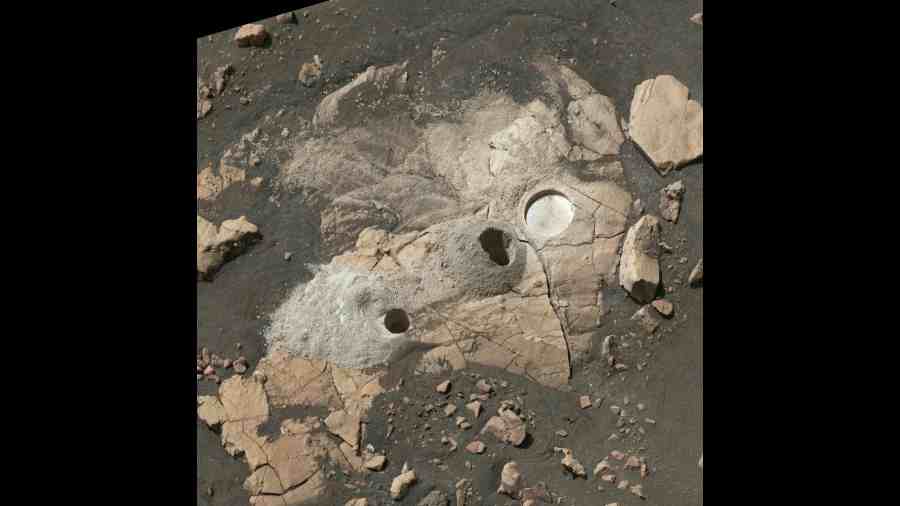NASA’s Perseverance rover, which began its mission on Mars 18 months ago, has found some organic matter in rock samples on the planet, reports CNN.
Such samples were found after investigating the site of an ancient river delta and are considered the most important samples yet.
The rover is on a mission to determine if life ever existed on the face of the red plant. For this purpose, the Perseverance is collecting rock samples that could give any indication about the existence of microbial life on the planet. The rover has so far collected 12 rock samples.
The recent findings which include organic matter indicates that 3.5 billion years ago, Jezero Crater had the potential to be habitable.
“The rocks that we have been investigating on the delta have the highest concentration of organic matter that we have yet found on the mission,” said Ken Farley, Perseverance project scientist at the California Institute of Technology in Pasadena, according to CNN.
After investigating the surface of the crater, the rover found evidence of volcanic or igneous rock. Perseverance has been studying the floor in its second campaign over the past five months and found evidence of rich sedimentary rock layers.
The team of scientists named one of the sampled rocks, ‘Wildcat Ridge’.
“The delta, with its diverse sedimentary rocks, contrasts beautifully with the igneous rocks – formed from crystallization of magma – discovered on the crater floor,” Farley said, according to CNN.
NASA’s Perseverance rover, which began its mission on Mars 18 months ago, has found some organic matter in rock samples on the planet. Such samples were found after investigating the site of an ancient river delta and are considered the most important samples yet.
The rover is on a mission to determine if life ever existed on the face of the red plant. For this purpose, the Perseverance is collecting rock samples that could give any indication about the existence of microbial life on the planet. The rover has so far collected 12 rock samples.
The recent findings which include organic matter indicates that 3.5 billion years ago, Jezero Crater had the potential to be habitable.
“The rocks that we have been investigating on the delta have the highest concentration of organic matter that we have yet found on the mission,” said Ken Farley, Perseverance project scientist at the California Institute of Technology in Pasadena, according to CNN.
After investigating the surface of the crater, the rover found evidence of volcanic or igneous rock. Perseverance has been studying the floor in its second campaign over the past five months and found evidence of rich sedimentary rock layers.
The team of scientists named one of the sample rocks, ‘Wildcat Ridge’.
“The delta, with its diverse sedimentary rocks, contrasts beautifully with the igneous rocks – formed from crystallization of magma – discovered on the crater floor,” Farley said, according to CNN.










